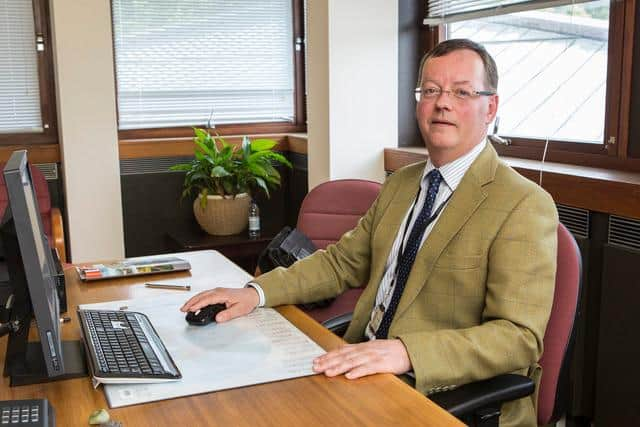Recovery from Covid-19 is 'number one priority' for council chiefs after plan agreed to lift Northumberland economy


Coun Peter Jackson set out a six-point pledge for making this happen at a special meeting of Northumberland County Council’s cabinet on Tuesday, June 23, where a recovery plan was agreed.
He described recently reported figures such as the 34,000 furloughed jobs in Northumberland and the 75% rise in those seeking jobless benefits from March to May as ‘very sobering’.
Advertisement
Hide AdAdvertisement
Hide Ad“However, it’s important we remember that before the crisis, our economy was in a good place, with real strengths in key sectors, including tourism, manufacturing, pharmaceuticals, and in energy and offshore,” he said.
“We need to rebuild confidence through strong leadership and acknowledge that we have not lost our strengths in innovation, skills, our natural assets, and of course our people, and we need to harness all these to make sure we meet the challenge and come back stronger than ever.”
Coun Jackson noted that the announcement by the Prime Minister about the further easing of the lockdown, which came shortly before the meeting started, was a positive one for the likes of the county’s tourism industry.
He said that caution is still needed, but added: “We’re not there yet, but we can see some light at the end of the tunnel.”
Advertisement
Hide AdAdvertisement
Hide AdEnsuring that Northumberland’s visitor economy comes back ‘stronger than before’ is one of the six planks of the economic recovery plan, with another being moving ahead swiftly with the council’s plans to invest in new infrastructure.
The authority plans to work with the Government to accelerate plans for the Northumberland line – for passenger services connecting the county’s south-east with Newcastle and the Metro, as well as doubling down on regeneration projects in Blyth, Hexham, Bedlington and Ashington, while working on plans to invest in the future of rural towns.
The business hub which has been set up to provide support and advice as well as distribute government grants will become a permanent feature, while ensuring that apprenticeships and training opportunities are available to all is another theme.
Finally, the council pledged to continue to push ahead with the delivery of its climate action plan, including plans to plant one million new trees as part of the Great Northumberland Forest and to establish a Forest Partnership to support a green economy.
Advertisement
Hide AdAdvertisement
Hide AdTourism will be at the heart of the plan though, as it is recognised that the hospitality, accommodation, food and drink, and retail sectors were particularly hard hit by the pandemic, at a time which would ordinarily be the run-up to peak tourist season.
Coun Cath Homer, the cabinet member for tourism, said: “Tourism in Northumberland had been increasing year on year before the virus hit, which makes recovery even more important.
“This is exactly why we have put significant investment into a new state-of-the-art digital offer for Visit Northumberland, alongside a fresh new brand.
“Alongside the package of support, we have secured £1.5million through the North of Tyne Covid Capacity Fund specifically for tourism businesses; this investment will help kick-start the visitor economy and ensure Northumberland continues to be a destination of choice.”
Advertisement
Hide AdAdvertisement
Hide AdA video of James Ramsbotham, chief executive of the North East England Chamber of Commerce, was shared during the meeting, in which he said: “The Chamber is absolutely committed to working with the council and its partners to help the county and the North East get back on its feet and achieve its full potential.”
The overall mood from members of the cabinet was one of optimism, something which may well be needed against a backdrop of concerns, which include a report last week naming Northumberland as one of the council areas in England which could be hardest hit by the coronavirus crisis.
The study, by the Institute for Fiscal Studies (IFS), looked at three dimensions of vulnerability – health, jobs and workers, family – and found that Northumberland is one of nine local authorities which are more vulnerable than average across all three domains, which ‘likely reflects their relatively elderly populations, economic reliance on tourism and hospitality, and concentrated pockets of local socio-economic deprivation’.
As well as the economy, the council’s recovery plan also addresses initial priorities for communities and people, the environment and the local authority itself, and will be followed by further reports on recovery planning in the coming months.